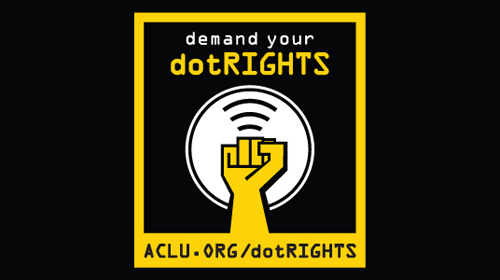
In the digital age that we live in today, we are constantly exposing our personal information online. From using cell phones and GPS devices to online shopping and sending e-mail, the things we do and say online leave behind ever-growing trails of personal information. The ACLU believes that Americans shouldn’t have to choose between using new technology and keeping control of your private information. Each week, we feature some of the most interesting news related to technology and civil liberties that we’ve spotted from the previous week.
[San Francisco Chronicle]
"BART and other government agencies in California would be barred from shutting down cellular phone networks unless they first obtain a court order under a bill that is sailing through the Legislature."
[Read Write Web — Dave Copeland]
"The Cyber Intelligence Sharing and Protection Act of 2011 is a bigger, badder version of the Stop Online Piracy Act that was defeated earlier this year. One of the biggest differences this time around, however, is that some of the big tech companies that threatened to go dark if SOPA moved forward are jumping to support CISPA."
See Also Proposed Amendments to #CISPA Don't Protect Privacy [ACLU Washington Markup]
See Also Kicking off "Stop Cyber Spying Week" [ACLU Washington Markup]
See Also Stop Cyber Spying [ACLU Blog of Rights]
[NPR]
“…Online privacy policies are so cumbersome and onerous that it would take the average person about 250 working hours every year — about 30 full working days — to actually read the privacy policies of the websites they visit in a year, according to an by researchers Aleecia M. McDonald and Lorrie Faith Cranor.”
[ACLU of Northern California]
The ACLU of Northern California (ACLU-NC) and San Francisco Bay Guardian (Bay Guardian) have filed a Freedom of Information Act (FOIA) to try to uncover how United States Attorneys in the Northern District of California are seeking and accessing sensitive .
See Also [EFF]
[New York Times]
"A number of the tools focused on taking advantage of data about a user’s location, pointing toward tensions that will very likely increase as products are developed that use mobile devices as sensors and transmitters."
Learn more about dotRights: Sign up for breaking news alerts, , and .

